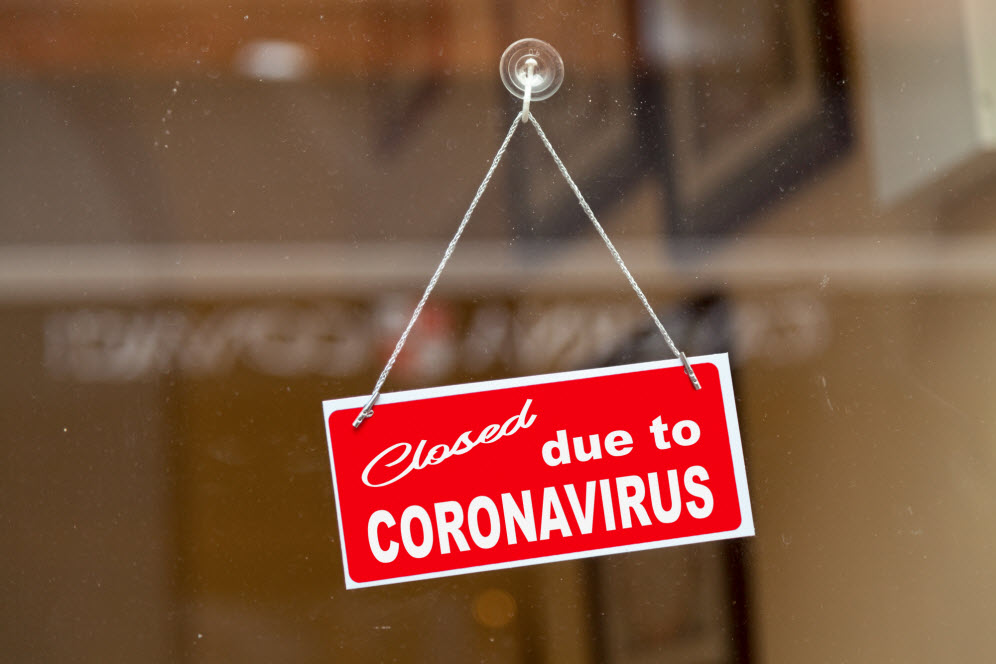
The uncertainty surrounding the coronavirus pandemic has created many novel, or at least unusual, legal issues, one of which is the interpretation and applicability of force majeure provisions in contracts. The term force majeure literally means “superior force,” and is applied to contract provisions that excuse performance by one party where problems beyond the reasonable control of that party arise which prevent performance. Whether or not COVID-19 can qualify as a condition that triggers force majeure provisions in contracts, be they contracts for commercial leasing, the provision of goods or services, or insurance, has become a hot legal topic in recent months.
Traditionally, force majeure provisions in contracts have included the following:
- Acts of God, such as severe acts of weather or nature including floods, fires, lightning, earthquakes, and storms;
- War, acts of terrorism, and more recently, epidemics;
- Acts of governmental authorities, such as expropriation, condemnation, and changes in laws and regulations;
- Strikes and labor disputes; and
- Certain accidents
Determining whether a force majeure provision in a contract can be invoked is generally a fact intensive inquiry that requires careful examination of the express language of the particular contract involved. Force majeure provisions are usually subject to narrow interpretation by the courts. The words or terms provided are not given a broad, expansive meaning but are restricted to things of the same type as the specific matters mentioned in the contract. The rationale behind the narrow interpretation of force majeure clauses is that they were originally established to limit damages when specifically recognized conditions arise that are beyond the control of the parties and frustrate proper performance of the contract, and, the parties themselves defined those conditions that will invoke the force majeure provision at the time they negotiated or formed the contract.
While COVID-19 has brought force majeure provisions into the limelight, problems with their interpretation in contracts are not new. In Hawaii, the first case examining similar issues goes back to 1854. In the case of Dougherty v. Wilcox, 1 Haw. 131, the Supreme Court of the Kingdom of Hawaii ruled that where a ship captain, Dougherty, paid an advance to a shipping master, Wilcox, for the hire of a particular crew member for a voyage, who in turn paid the advance to that crew member, and the crew member contracted smallpox and died before the voyage, that the shipping master must return the advance money to the captain. The court held that because the shipping master failed to specify sickness or death of the crew member as a specific term excusing performance in his contract with the captain– in this case the terms under which he would not provide a refund– that he was bound to perform under the contract and provide the refund. The court stated:
If by his own contract a person creates a duty or charge on himself, he is bound thereby notwithstanding the occurrence of any contingency, since he could have provided against it by the stipulations in his contract.
See Dougherty at 133. Basically, what this all boils down to is that a party seeking to excuse performance under a contract due to unforeseen circumstances rendering performance of the contract impossible or difficult is unable to avoid performance unless the terms of the contract provision expressly provide for that particular condition because the parties had the opportunity to provide any specific terms in their force majeure provision of their contract at the time the contract was formed.
As Dougherty v. Wilcox points out, economic hardship of the parties, or the fact that neither party did anything wrong, does not factor into the analysis:
Whenever a case comes before us that is likely to be attended with hardship to the parties, a struggle naturally arises in our minds to find out (if possible) some way of extricating all parties from it. In the present case, both parties are innocent; and whatever our decision, one party must suffer…
But on the question of executing an agreement, hardship alone cannot be regarded as sufficient ground for relief.
Dougherty at 131, 134. See also OWBR, LLC v. Clear Channel Communications, Inc., 266 F. Supp. 2d 1214 (D. Haw. 2003) (Economic impact of terrorism attack of September 11, 2001 did not excuse performance of resort hotel to hold conference in February 2002.) Case law in other jurisdictions support this view. See Sherwin Alumina L.P. v. AluChem, Inc., 512 F. Supp. 2d 957, 967 (S.D. Tex. 2007).
Thus, the issue of applicability for COVID-19 is clear where force majeure provisions expressly include the terms “epidemic” or “pandemic” among those excusing performance by a party. It may not be so clear where a force majeure provision includes “acts of governmental authorities,” “condemnation,” and/or “changes in laws and regulations,” as parties seeking to avoid performance may argue that stay at home orders issued by Hawaii’s governor and mayors reasonably fall into this category. The same could also be argued for the term “acts of God.” For example, although it did not rule on these grounds, the court in Dougherty noted that the sickness and death of the crew member from smallpox was an act of God and questioned at the outset whether this should excuse performance. See Dougherty at 132.
In closing, COVID-19 will certainly test the ability to invoke the “acts of governmental authorities” and “acts of God” provisions of force majeure clauses that were in effect at the time of the pandemic, and, encourage parties to thoughtfully negotiate a full list of force majeure events in drafting contracts in the future. Such events should include “epidemic,” “pandemic,” and/or “quarantine,” and any other possible emergencies, erring on the side of inclusiveness in order to best guard against loss and clearly allocate risk.
To learn more contact Emily A. Gardner, Attorney at Law, LLLC at 808-727-1220.
